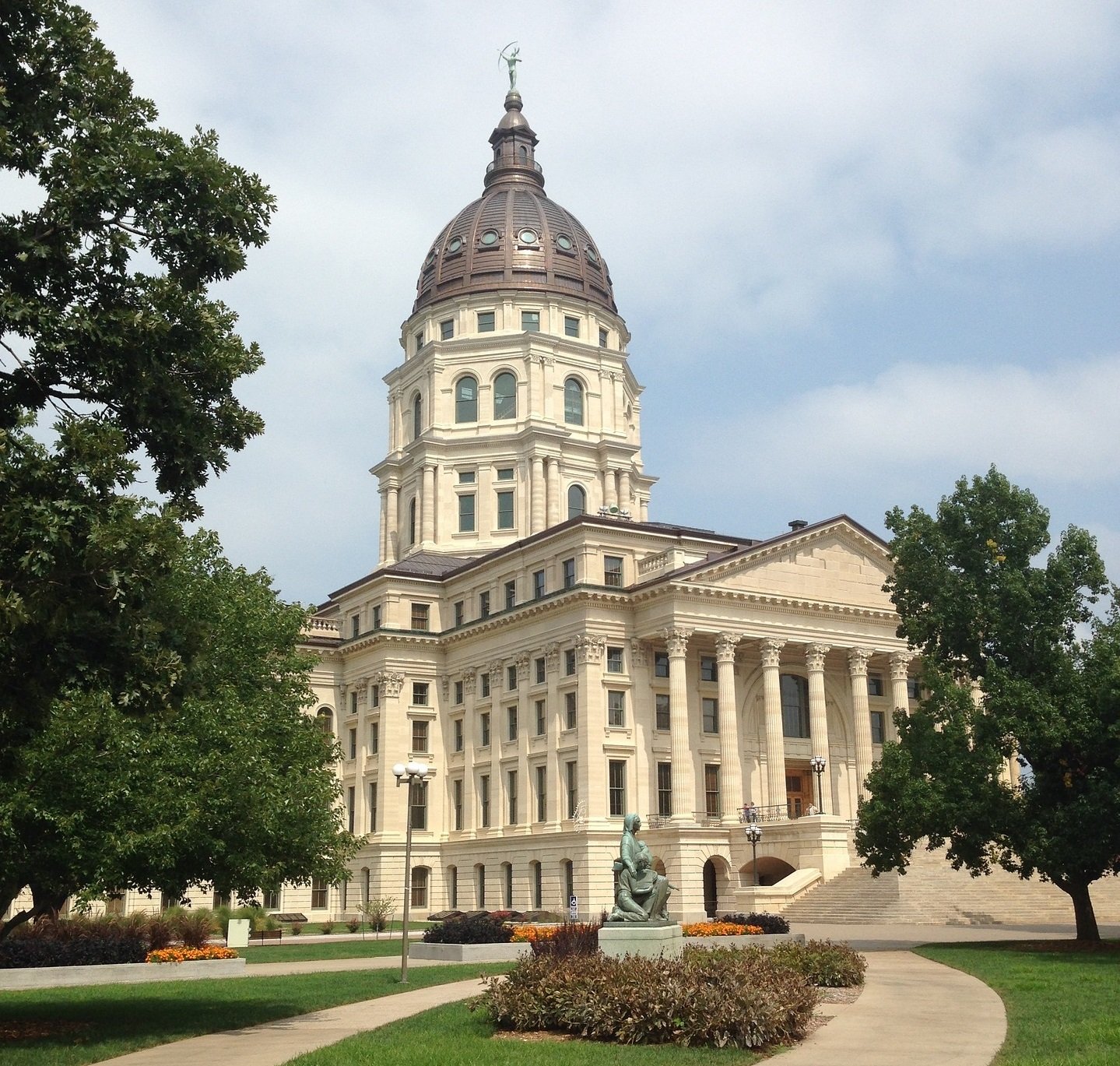(CN) — The Kansas Supreme Court on Friday reinstated a lawsuit by four voter turnout organizations seeking to invalidate a state law that makes it a felony to impersonate an election official.
The state's top court overturned a 2022 appellate court finding that the organizations didn't have standing to pursue their challenge of the statute because they don't engage in deceptive practices and didn't face a credible threat of prosecution.
This was incorrect, according to the high court, because the organizations' volunteers are frequently mistaken for election officials when they try to register voters. This is not because they try to impersonate election officials but is the result of "innocent listener mistake," which is usually quickly cleared up if the people they seek to register ask them.
Still, the organizations claim they have had to curtail their activities because they fear they could face prosecution based on such innocent listener mistakes. And the Kansas Supreme Court agreed the statute's language is too ambiguous to infer that the organizations have nothing to worry about.
"The statute simply does not provide clarity that truthful speech which generates an innocent or unreasonable listener mistake is outside of its scope," the high court wrote. "And this is sufficient to confer pre-enforcement standing."
The prohibition on impersonating an election official was part of two the ACLU of Kansas characterized of "voter suppression laws" the Legislature passed in 2021.
Among other things, the law in question makes it a felony to engage in "conduct that gives the appearance of being an election official" or conduct that "would cause another person to believe a person engaging in such conduct is an election official."
Kansas Governor Laura Kelly, a Democrat, vetoed the bill, but the Republican-dominated Legislature overrode her veto.
The League of Women Voters of Kansas, Loud Light, the Kansas Appleseed Center for Law and Justice, and the Topeka Independent Living Resource Center sued to block these provisions of the law, arguing they are overbroad, unconstitutionally vague and resulted in the criminalization of their voter education and registration activities.
They specifically claimed that their activities could be criminalized based on how they were perceived rather than on how they were intended. Even though their volunteers always identify themselves as working for the nonprofits, they are often mistaken for county election officials, according to the Supreme Court's ruling.
The organizations failed to persuade a trial judge on the merits of their claim, and the appellate court ruled that they didn't have standing to bring them. Friday's decision by the state's top court addressed only the standing issue, and concluded that the appellate court got it wrong.
“This is an important decision from the Supreme Court, making clear that Kansans do not have to wait to be prosecuted to challenge laws that threaten to criminalize constitutionally protected speech," Elisabeth Frost, an attorney representing the four nonprofits, said. Our clients "provide critical voter registration and education services — core constitutionally protected activity — that has been severely chilled by the challenged law. We are proud to be in the fight with them and look forward to getting the law struck down for good.”
Representatives of Kansas Attorney General Kris Kobach didn't immediately respond to a request for comment on the ruling.
Subscribe to Closing Arguments
Sign up for new weekly newsletter Closing Arguments to get the latest about ongoing trials, major litigation and hot cases and rulings in courthouses around the U.S. and the world.









